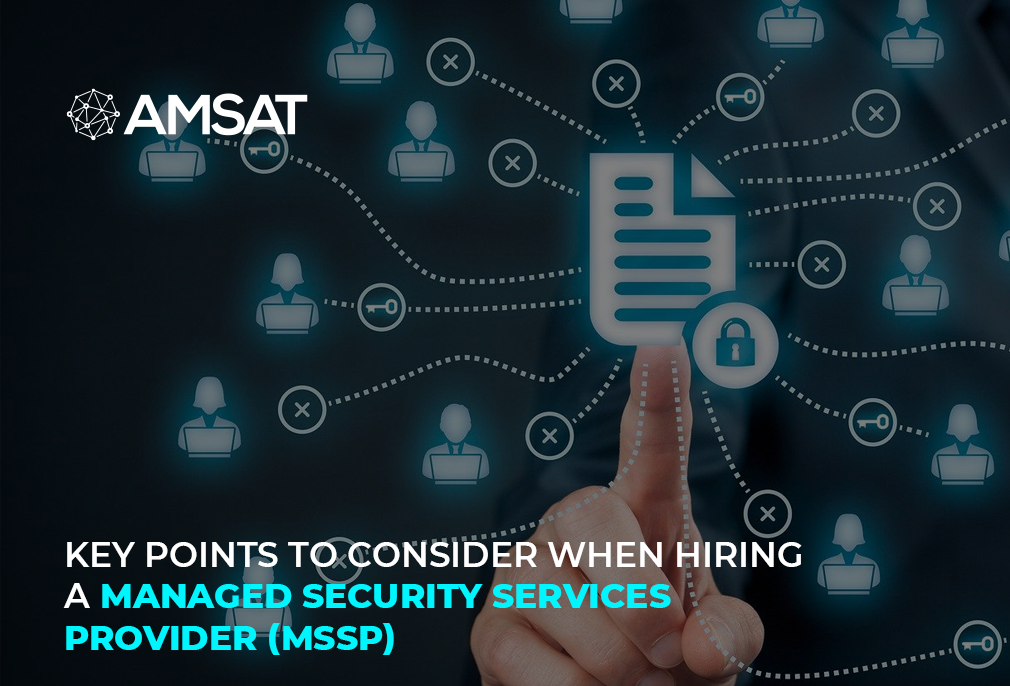Latest Blogs

By AMSAT Sep 23,2022
10 Ways to Boost Data Protection
Organizations worldwide are grappling with the serious issue of security breaches virtually on a regular basis. And this points to the organizations’ inability to adopt robust security measures from falling prey to malicious actors ready to cause you harm beyond your imagination.
The survival and success of your company depends primarily on foolproof security of your data—and this includes your financial information, employment data, and trade secrets. If there are gaps in your security apparatus, then you are at high risk of experiencing massive financial loss and reputational damage, posing a potent existential threat to your business.
Why is data privacy important?
Based on the sensitivity and value of the data, data privacy is a set of rules for how it should be acquired or managed. Personal health information (PHI) and personally identifiable information (PII) are often covered by data privacy laws, which include data about finances, health, social security or ID numbers, names, dates of birth, and contact details.
All sensitive information that businesses handle, including that of their clients, shareholders, and workers, is subject to data privacy concerns. This data frequently has a crucial impact on corporate development, operations, and finances.

How to Improve Data Security: Some Tips
You may secure your data by using the following recommendations.
Be focused on insider threats
Since external threats are frequently depicted as the biggest and most expensive ones in media, it’s simple to visualize them. The truth is that insider attacks can be challenging to identify and stop due to their nature. It might be as easy as a worker opening an email attachment they think is from a reliable source and activating a ransomware worm. Threats of this nature are the most frequent and expensive worldwide.
Secure the actual data, not simply the perimeter
With approximately 90% of security resources going toward firewall technology, it appears that many firms are focusing on protecting the walls around their data. However, there are countless potential workarounds for firewalls, including through clients, partners, and staff. These individuals can all get beyond external cybersecurity and abuse sensitive data. Because of this, you must make sure that your security efforts are concentrated on the data itself rather than just the perimeter.
Secure every device
More and more people in today’s modern world prefer to work on their personal or mobile devices. How can you be certain that these tools are reliable? Ensure that all data is encrypted before storing it and that it stays encrypted across migrations.
Delete superfluous data
Sensitive information is a crucial component of the operations of many businesses, particularly those in the healthcare, finance, public sector, and education. Having information disposal procedures in place helps stop outdated data from being lost or stolen later on. It will be much easier to prevent your staff from storing redundant data if you have a procedure in place for destroying, deleting, or otherwise altering it to make it unreadable.

Test your security
If you believe that putting antivirus software on every computer or device can shield your business from threats, you must be mistaken. Hiring a reputable company to undertake a security assessment will always find vulnerabilities you weren’t expecting, as previous data breaches have demonstrated. You should stroll across your workplace and inspect the desks of your coworkers. If you look closely enough, you can easily find a sticky note with a password scrawled on it.
Create strong passwords
Many businesses continue to have loose password standards, which results in basic, generic, and hackable passwords for important accounts that have access to sensitive and priceless data. The first step you can do to improve your security in this area is to implement strong passwords. Use passwords that are moderately complex and update them at least every 90 days. Passwords like “12345” or “Admin1” should never be used. Never write down your passwords and leave them on your computer where others could discover them.
Commit more money and time to cybersecurity
Since data security continues to be the biggest risk to your IT infrastructure, many CIOs have acknowledged that investing more time and money in it is essential. With the recognition that cybersecurity must be a crucial component of all business processes, many large corporations with critical corporate data to protect are employing chief security officers, frequently to board level roles.
Update your programs
You should ensure that your machine has the latest updates and patches. The most current update to your security software determines how effective they are. It is important to update these programs frequently because hackers and ransomware strains are continually adapting to exploit flaws in older software versions.
Regularly back up your data
This ought to be a key component of your IT security plan by now. You can survive anything, from an accidental file deletion to a full ransomware lockdown, if you have secure backups in place. Backup data should be kept in a safe location that is remote from your main place of business as a security best practice.

Educate everyone in the company about security
Anyone with a username and password is in charge of maintaining data security. Managers and staff must be routinely reminded by IT administrators not to divulge login information to any strangers. Everyone has a role in data security; it is not simply the responsibility of the IT team.
Conclusion
Remember, data is like God for organizations of all types and sizes, particularly large ones. Therefore, as a sagacious entrepreneur, you are duty-bound to safeguard it to be able to ensure the security of your organization’s and your employees’ sensitive information. All the points mentioned above will help you implement a robust security posture, enabling you to win the trust of your employees and ensure the longevity of your organization.
TAGS
- Data Protection
- Security Updates
Recent Blogs
Ready to Get Started?
Our specialists are ready to tailor our security service solutions to fit the needs of your organization.










inscreva-se na binance says:
Thanks for sharing. I read many of your blog posts, cool, your blog is very good.